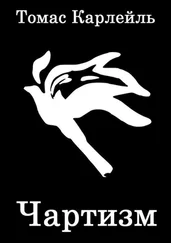Томас Карлейль - History of Friedrich II of Prussia — Volume 18
Здесь есть возможность читать онлайн «Томас Карлейль - History of Friedrich II of Prussia — Volume 18» — ознакомительный отрывок электронной книги совершенно бесплатно, а после прочтения отрывка купить полную версию. В некоторых случаях можно слушать аудио, скачать через торрент в формате fb2 и присутствует краткое содержание. Жанр: foreign_prose, История, literature_19, foreign_edu, foreign_antique, на английском языке. Описание произведения, (предисловие) а так же отзывы посетителей доступны на портале библиотеки ЛибКат.
- Название:History of Friedrich II of Prussia — Volume 18
- Автор:
- Жанр:
- Год:неизвестен
- ISBN:нет данных
- Рейтинг книги:5 / 5. Голосов: 1
-
Избранное:Добавить в избранное
- Отзывы:
-
Ваша оценка:
- 100
- 1
- 2
- 3
- 4
- 5
History of Friedrich II of Prussia — Volume 18: краткое содержание, описание и аннотация
Предлагаем к чтению аннотацию, описание, краткое содержание или предисловие (зависит от того, что написал сам автор книги «History of Friedrich II of Prussia — Volume 18»). Если вы не нашли необходимую информацию о книге — напишите в комментариях, мы постараемся отыскать её.
History of Friedrich II of Prussia — Volume 18 — читать онлайн ознакомительный отрывок
Ниже представлен текст книги, разбитый по страницам. Система сохранения места последней прочитанной страницы, позволяет с удобством читать онлайн бесплатно книгу «History of Friedrich II of Prussia — Volume 18», без необходимости каждый раз заново искать на чём Вы остановились. Поставьте закладку, и сможете в любой момент перейти на страницу, на которой закончили чтение.
Интервал:
Закладка:
One mistake there was, miles westward on the right wing; due to Mannstein, our too impetuous Russian friend, Mannstein well to right, while marching forward according to order, has Croat musketry spitting upon him from amid the high corn, to an inconvenient extent: such was the common lot, which others had borne and disregarded: perhaps it was beyond the average on Mannstein, or Mannstein's patience was less infinite; any way it provoked Mannstein to boil over; and in an evil moment he said, "Extinguish me that Croat canaille, then!" Regiment Bornstedt faced to right, accordingly; took to extinguishing the Croat canaille, which of course fled at once, or squatted closer, but came back with reinforcements; drew Mannstein deeper in, fatally delayed Bornstedt, and proved widely ruinous. For now he stopped the way to those following him: regiments marching on to rear of Mannstein see Mannstein halted, volleying with the Austrians; ask themselves "How? Is there new order come? Attack to be in this point?" And successively fall on to support Mannstein, as the one clear point in such dubiety. So that the whole right wing from Regiment Bornstedt westward is storming up the difficult steeps, in hot conflict with the Austrians there, where success against them had been judged impracticable;—and there is now no reserve force anywhere to be applied to in emergency, for Hulsen's behoof or another's; and the Plan of Battle from Mannstein westward has been fatally overturned. Poor Mannstein, there is no doubt, committed this error, being too fiery a man. Surely to him it was no luxury, and he paid the smart for it in skin and soul: "badly wounded in this business;" nay, in direct sequel, not many weeks after, killed by it, as we shall see!—
To Mannstein's mistake, Friedrich himself, in his account of Kolin, mainly imputes the disaster that followed; and such, then and afterwards, was the universal judgment in military circles; loading the memory of too impetuous Mannstein with the whole. [See Retzow, i. 135; Templehof, i. 214, 220.] Much talk there was in Prussian military circles; but there must also have been an admirable silence on the part of some. To Three Persons it was known that another strange incident had happened far ahead, far eastward, of Mannstein's position: incident which did not by any means tend to alleviate, which could only strengthen and widen, the evil results of Mannstein; and which might have lifted part of the load from Mannstein's memory! Not till the present Century, after the lapse of almost fifty years, was this secret slowly dug out of silence, and submitted to modern curiosity.
The incident is this;—never whispered of for near fifty years (so silent were the three); and endlessly tossed about since that; the sense of it not understood till almost now. [See Retzow, i. 126; Berenhorst; &c. &c.;—then FINALLY Kutzen, pp. 99, 217.] The three parties were: King Friedrich; Moritz of Dessau, leading on the centre here; Moritz's young Nephew Franz, Heir of Dessau, a brisk lad of seventeen, learning War here as Aide-de-camp to Moritz: the exact spot is not known to me,—probably the ground near that Inn of Slatislunz, or Golden-Sun; between the foot of Friedrich's-Berg and that:—fact indubitable, though kept dark so long. Moritz is marching with the centre, or main battle, that way, intending to wheel and turn hillwards, Kreczor-wise, as per order, certain furlongs ahead; when Friedrich (having, so I can conceive it, seen from his Hill-top, how Hulsen had done Kreczor, altogether prosperous there; and what endless capability there was of prospering to all lengths and speeding the general winning, were Hulsen but supported soon enough, were there any safe short-cut to Hulsen) dashed from his Hill-top in hot haste towards Prince Moritz, General of the centre, intending to direct him upon such short-cut; and hastily said, with Olympian brevity and fire, "Face to right HERE!" With Jove-like brevity, and in such blaze of Olympian fire as we may imagine. Moritz himself is of brief, crabbed, fiery mind, brief in temper; and answers to the effect, "Impossible to attack the enemy here, your Majesty; postured as they are; and we with such orders gone abroad!"—"Face to right, I tell you!" said the King, still more Olympian, and too emphatic for explaining. Moritz, I hope, paused, but rather think he did not, before remonstrating the second time; neither perhaps was his voice so low as it should have been: it is certain Friedrich dashed quite up to Moritz at this second remonstrance, flashed out his sword (the only time he ever drew his sword in battle); and now, gone all to mere Olympian lightning and thundertone, asks in THIS attitude, "WILL ER (Will He) obey orders, then?"—Moritz, fallen silent of remonstrance, with gloomy rapidity obeys.
Prince Franz, the young Nephew of Moritz, alone witnessed this scene; scene to be locked in threefold silence. In his old age, Franz had whispered it to Berenhorst, his bastard Half-Uncle, a famed military Critic,—who is still in the highest repute that way (Berenhorst's KRIEGSKUNST, and other deep Books), and is recognizable, to LAY readers, for an abstruse strong judgment; with equal strength of abstruse temper hidden behind it, and very privately a deep grudge towards Friedrich, scarcely repressible on opportunity. From Berenhorst it irrepressibly oozed out; ["Heinrich van Berenhorst [a natural son of the Old Dessauer's], in his Betrachtungen uber die Kriegskunst, is the first that alludes to it in print. (Leipzig, 1797,—page in SECOND edition, 1798, is i. 219)."] much more to Friedrich's disadvantage than it now looks when wholly seen into. Not change of plan, not ruinous caprice on Friedrich's part, as Berenhorst, Retzow and others would have it; only excess of brevity towards Moritz, and accident of the Olympian fire breaking out. Friedrich is chargeable with nothing, except perhaps (what Moritz knows the evil of) trying for a short-cut! Such is now the received interpretation. Prince Franz, to his last day, refused to speak again on the subject; judiciously repentant, we can fancy, of having spoken at all, and brought such a matter into the streets and their pie-powder adjudications. [In KUTZEN, pp. 217-237, a long dissertation on it.] For the present, he is Adjutant to Moritz, busy obeying to the letter.
Friedrich, withdrawing to his Height again, and looking back on Moritz, finds that he is making right in upon the Austrian line; which was by no means Friedrich's meaning, had not he been so brief. Friedrich, doubtless with pain, remembers now that he had said only, "Face to right!" and had then got into Olympian tempest, which left things dark to Moritz. "HALB-LINKS, Half to left withal!" he despatches that new order to Moritz, with the utmost speed: "Face to right; THEN, forward half to left." Had Moritz, at the first, got that commentary to his order, there had probably been no remonstrance on Moritz's part, no Olympian scene to keep silent; and Moritz, taking that diagonal direction from the first, had hit in at or below Kreczor, at the very point where he was needed. Alas for overhaste; short-cuts, if they are to be good, ought at least to be made clear! Moritz, on the new order reaching him, does instantly steer half-left: but he arrives now above Kreczor, strikes the Austrian line on this side of Kreczor; disjoined from Hulsen, where he can do no good to Hulsen: in brief, Moritz, and now the whole line with him, have to do as Mannstein and sequel are doing, attack in face, not in flank; and try what, in the proportion of one to two, uphill, and against batteries, they can make of it in that fashion!
And so, from right wing to left, miles long, there is now universal storm of volleying, bayonet-charging, thunder of artillery, case-shot, cartridge-shot, and sulphurous devouring whirlwind; the wrestle very tough and furious, especially on the assaulting side. Here, as at Prag, the Prussian troops were one and all in the fire; each doing strenuously his utmost, no complaint to be made of their performance. More perfect soldiers, I believe, were rarely or never seen on any field of war. But there is no reserve left: Mannstein and the rest, who should have been reserve, and at a General's disposal, we see what they are doing! In vain, or nearly so, is Friedrich's tactic or manoeuvring talent; what now is there to manoeuvre? All is now gone up into one combustion. To fan the fire, to be here, there, fanning the fire where need shows: this is now Friedrich's function; "everywhere in the hottest of the fight," that is all we at present know of him, invisible to us otherwise. This death-wrestle lasted perhaps four hours; till seven or towards eight o'clock in the June evening; the sun verging downwards; issue still uncertain.
Читать дальшеИнтервал:
Закладка:
Похожие книги на «History of Friedrich II of Prussia — Volume 18»
Представляем Вашему вниманию похожие книги на «History of Friedrich II of Prussia — Volume 18» списком для выбора. Мы отобрали схожую по названию и смыслу литературу в надежде предоставить читателям больше вариантов отыскать новые, интересные, ещё непрочитанные произведения.
Обсуждение, отзывы о книге «History of Friedrich II of Prussia — Volume 18» и просто собственные мнения читателей. Оставьте ваши комментарии, напишите, что Вы думаете о произведении, его смысле или главных героях. Укажите что конкретно понравилось, а что нет, и почему Вы так считаете.









